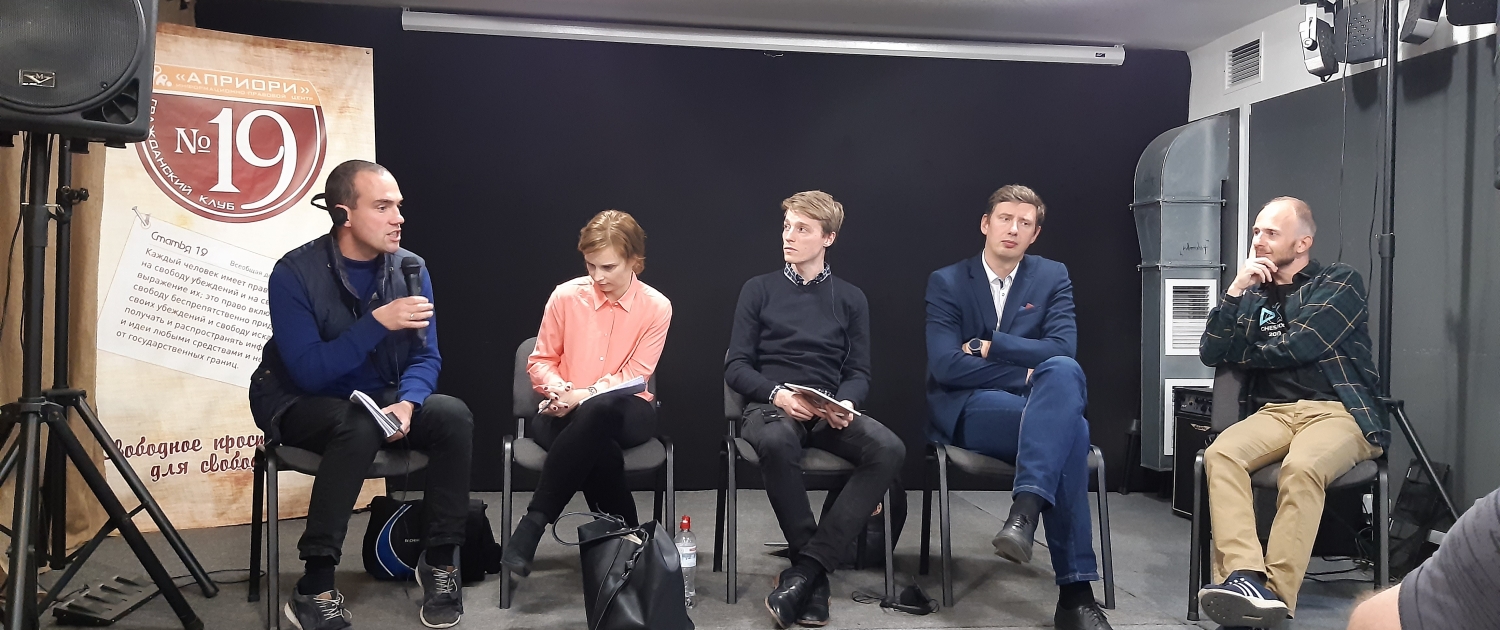Eastern Partnership Reflection Forum 2019: „Russian interests and influence are key in the region“
From 21-23 October the Eastern Partnership Reflection Forum 2019 took place in Chisinau, Republic of Moldova. Hannes Meissner, Senior Researcher at the CCBSR participated in a panel discussion on Engagement and Inclusive Security in the Transnistrian Region.
Photo (from left to right): Hannes MEISSNER, Senior Researcher, Competence Center for Black Sea Region Studies, Vienna; Sinikukka SAARI, Senior Associate Analyst, EU Institute for Security Studies (EUISS), Paris; Benno ZOGG, Senior Researcher, Center for Security Studies, Swiss Federal Institute of Technology Zurich (ETH Zurich), Zurich; Igor SHORNIKOV, Director, Institute of Social and Political Studies, Tiraspol; Evgenii DUNAEV, Chair, Informational and Legal Center “Apriori“, Tiraspol.
The event, organised by the Austro-French Centre for Rapprochement in Europe (CFA) (Vienna) in cooperation with the Institute for European Policies and Reforms (IPRE) and the Expert-Grup (both Chisinau), was titled “The Eastern Partnership in the next ten years: What Strategy for the European Union’s Eastern neighbourhood?”
In addition to various discussion rounds, on 23 October a side-event dedicated to the topic of “Engagement and Inclusive Security in the Transnistrian Region” took place at the Apriori Center in the Transnistrian capital of Tiraspol. Representing the Competence Center for Black Sea Region Studies at the UAS BFI Vienna, Senior Researcher Hannes Meissner was invited to share his expertise in a panel discussion.
Delivering tangible benefits to the Transnistrian population is key to the advancement of inclusive security in the region and beyond. Several initiatives – from the “package of eight“ to the EU’s DCFTA and other international programmes – have already made a contribution to that cause. The opening of Gura-Bicului-Bychok Bridge or the “licence plate agreement” are only a few examples of what has been achieved so far. But regardless of the diplomatic efforts deployed under the “5+2 format“ to negotiate a comprehensive settlement, further engagement under the banner of inclusive security will be needed in the future.
The panel of international experts, officials and civil society representatives took place in a format fostering inclusive dialogue with the public. The discussion, moderated by Benno Zogg (ETH Zurich), addressed the questions of how the international community can further strengthen its engagement in Transnistria, in which fields it can deliver further benefits to the Transnistrian residents and how international actors can best coordinate their efforts.
As Hannes Meissner highlighted, open dialogues and strengthening civil society platforms like the present one are positive first steps in discussing people’s needs in a region suffering from a massive population and brain drain. Nonetheless, real solutions mainly depend on the strengthening of cooperation platforms at the international level between the EU and Russia. Despite the fact that the conflict solution process is currently less stalled than the ones in Eastern Ukraine, Abkhazia and South Ossetia, there is little sign of an immediate breakthrough. As an important first step, Western actors need to admit that Russian interests and influence are key in the region.



